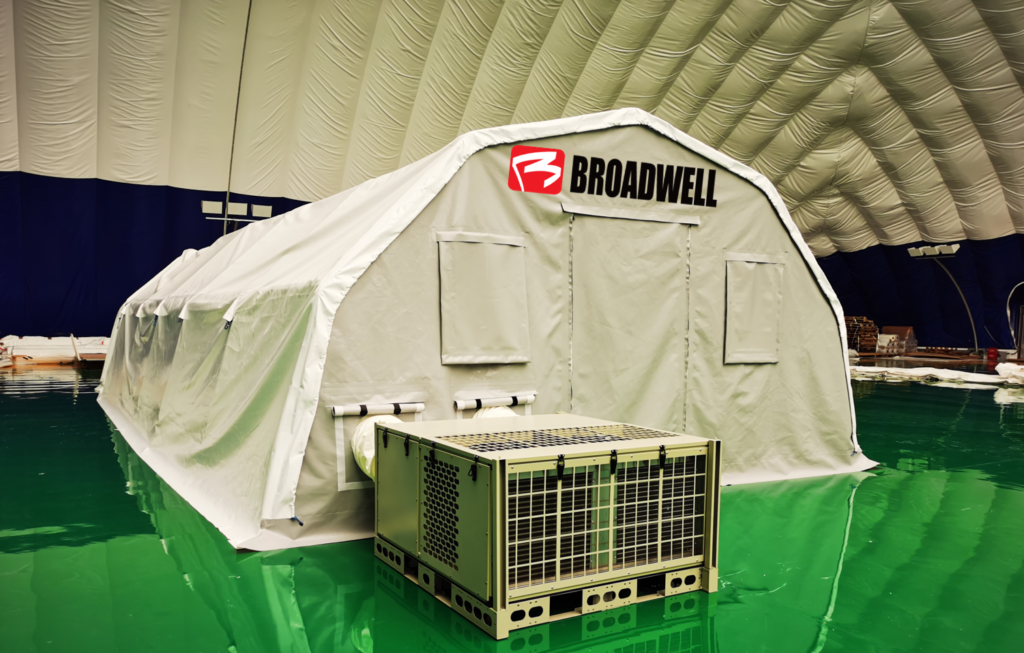Inflation Units
Air domes are pressurized structures, with air blowers constantly inflating the dome. Our domes come with both a main inflation unit and an auxiliary inflation unit that is powered by a natural gas- or propane-powered engine, which automatically starts up when the inflation pressure goes down (in accordance with the International Building Code [IBC 2018] Section 3102.8.1.1). The inflation units automatically adjust the pressure of the dome. Our mechanical engineers (licensed in all 50 states) determine the amount of CFM needed in your inflation units to maintain pressure, replace lost air, and provide needed air exchanges in the dome. Inflation units can also include enough CFM to replace air lost through open exit doors. This is required for domes with an occupancy of 50 or more, per IBC 2018 3102.8.3 and ASCE 55-16 C6.3.1.5.
99.9% Air Filtration and Covid Prevention
Broadwell also offers an advanced HEPA air filtration system that filters out 99.9% of air pollutants, including particles as small as the Covid-19 virus.
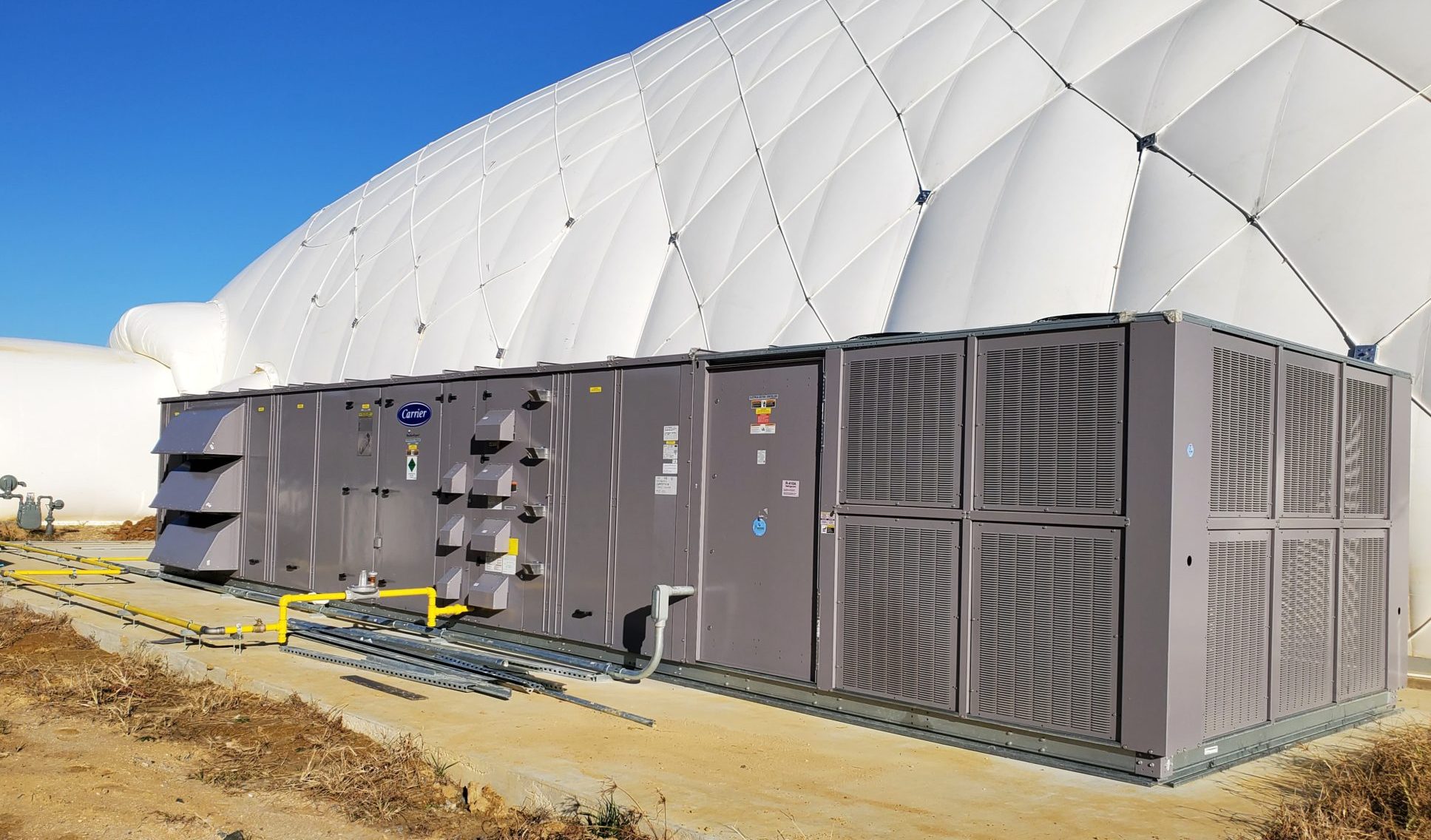
Air domes are pressurized structures, with air blowers constantly inflating the dome.
Heating and Air Conditioning
We can provide natural gas-powered heating and air conditioning units, which can be incorporated into an all-in-one unit with the inflation blowers. Broadwell's domes are the most efficient air domes in the world due to our thicker, stronger fabric and our triple weld manufacturing method, increasing the overall R-value of the dome.
HVAC Ducts
The inflation and HVAC units are located outside of the dome, with ducts going from the units to inside of the dome via ducts connecting to the dome wall, or via underground ducts coming up into the floor of the dome.
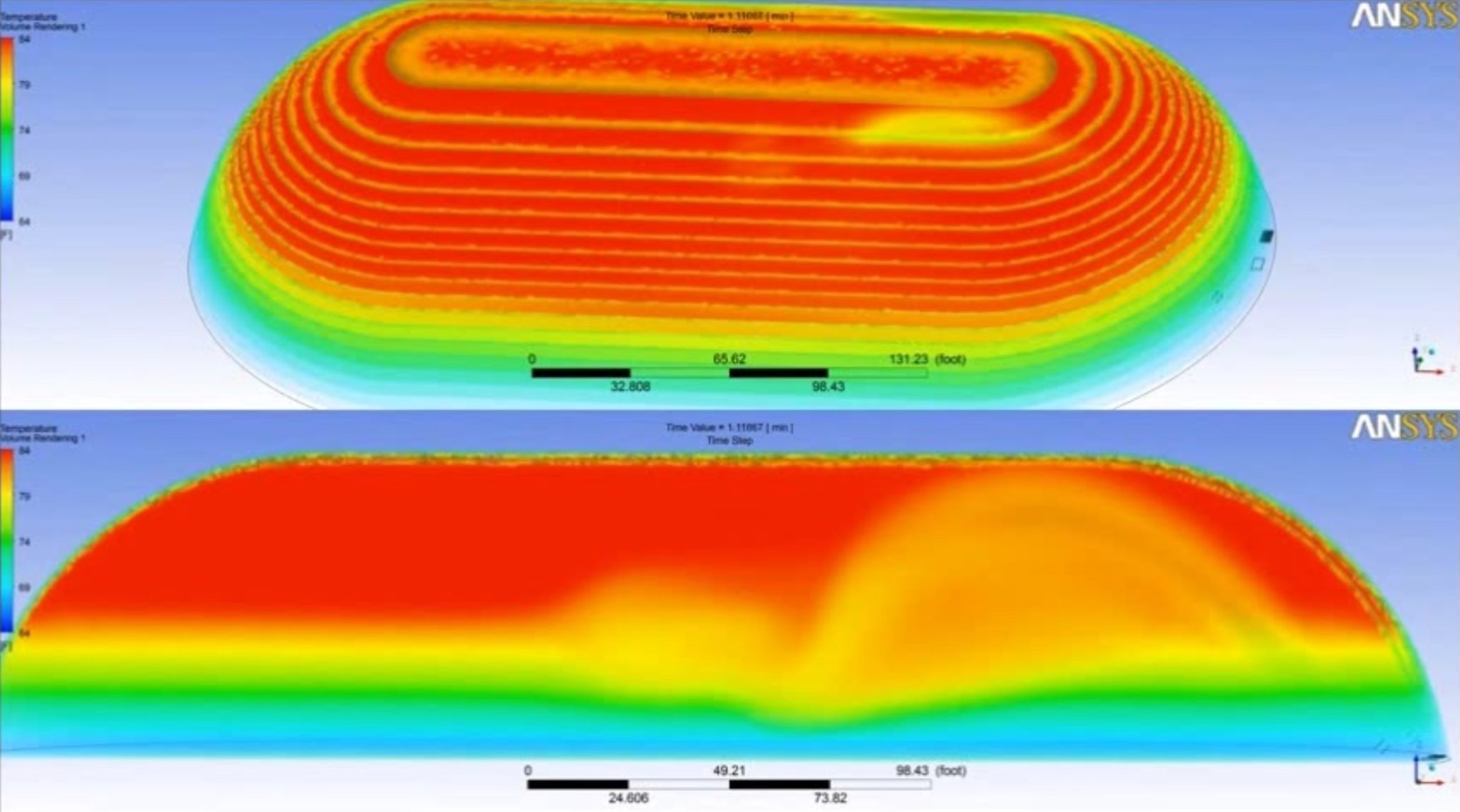
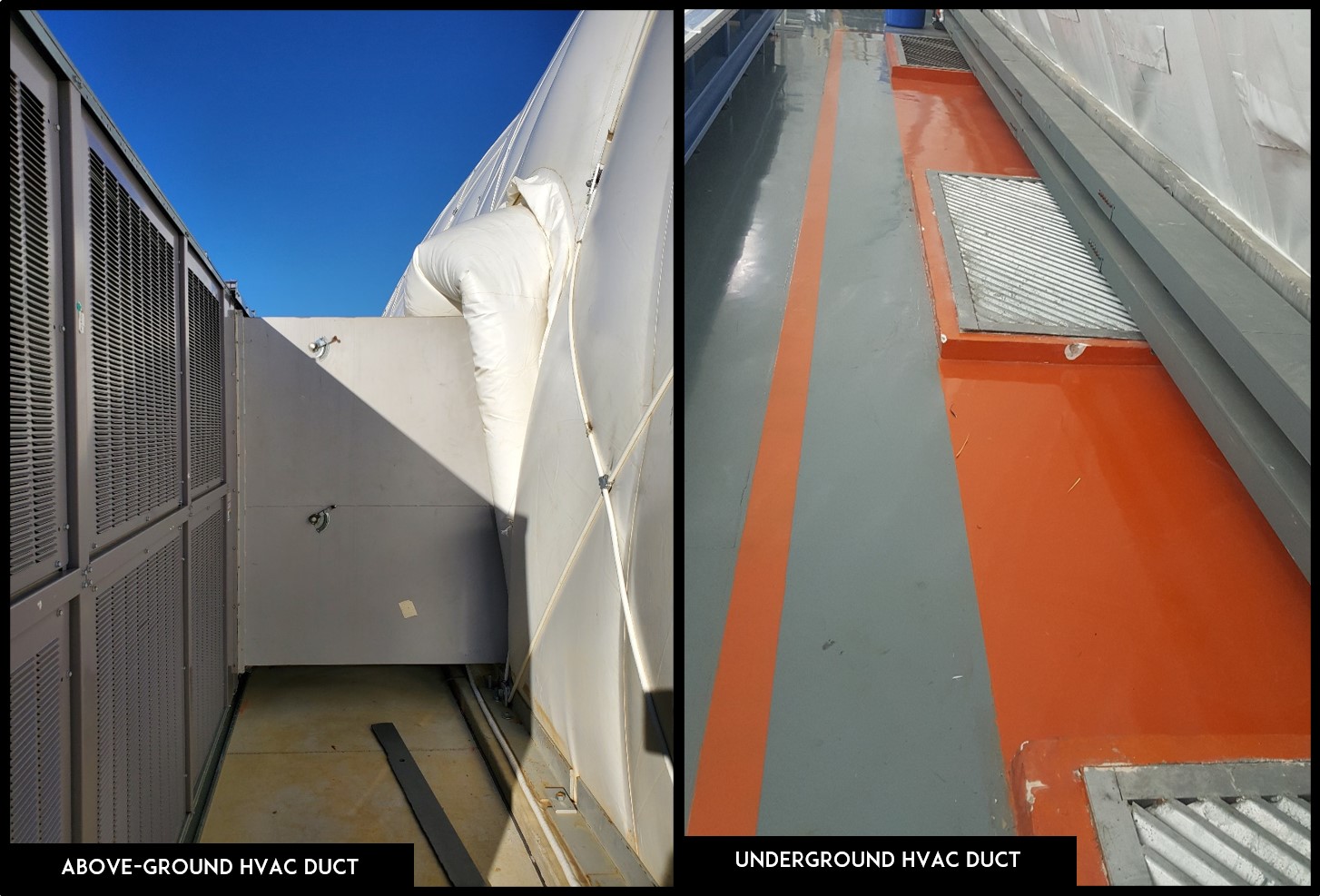
Operational Costs
Although inflation blowers are constantly running, our inflation and HVAC units are highly efficient; the operational cost of air domes is a fraction of the cost of traditional buildings. Inflation blower electrical costs are typically $0.2 per square foot per year, but it depends on a variety of factors. AC units increase electrical costs, and just like utility bills in a home, costs can vary depending on usage. To calculate a more accurate estimate of operational costs of your dome, we would consider the following:
- Your local utility cost of electricity, natural gas, or other fuel source used for your mechanical units.
- Type and amount of lighting used.
- If temperature controlling your dome, the "occupied" temperature and "unoccupied" temperature, and how many hours a day the dome will be at these temperatures?
- Your 10 year local temperature history. The higher the difference between desired internal and outside temperature, the more energy required to achieve it.
Monitoring
We developed a mobile app that allows you to monitor the pressure, temperature, air quality, and outside wind speed of your dome from any smart device. When the dome pressure drops below pre-defined thresholds, an alarm sounds and alerts are sent to smart devices.
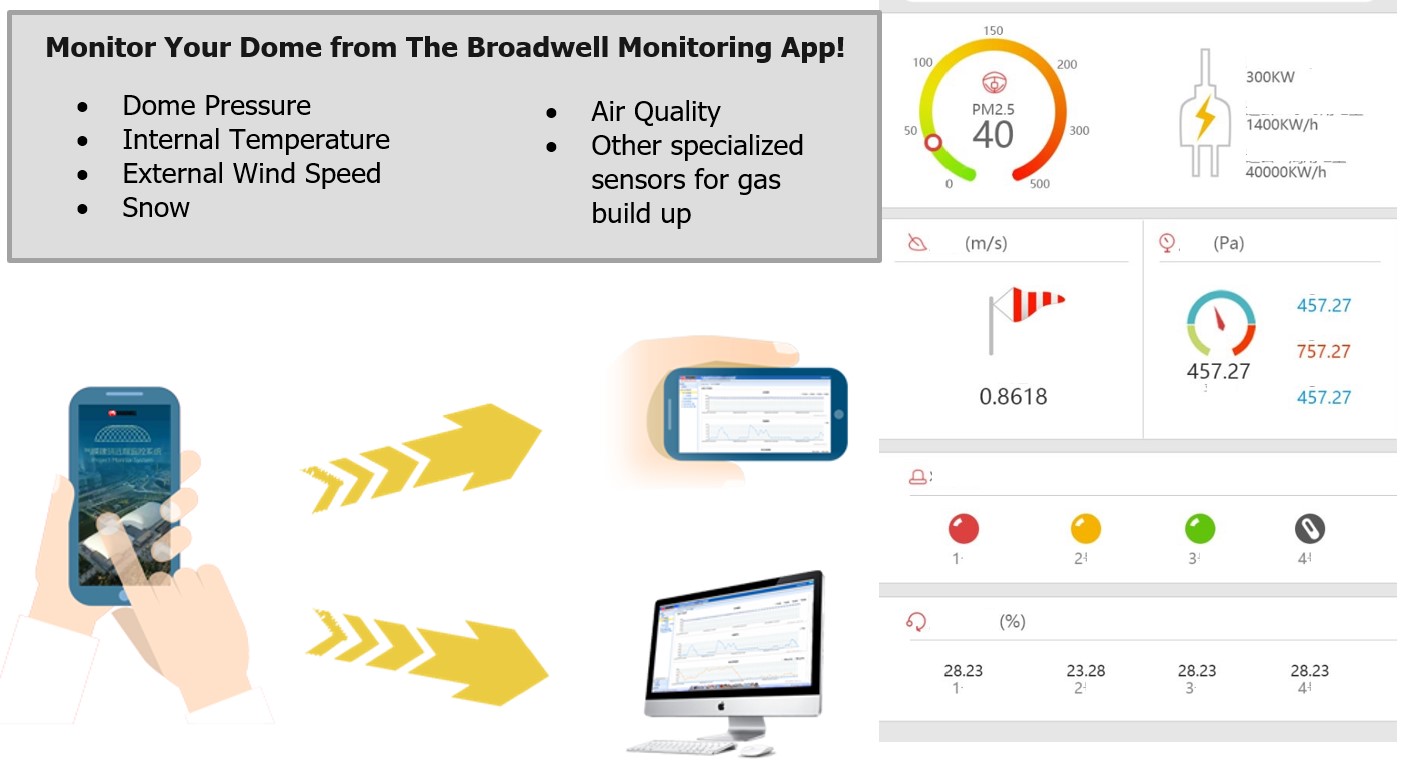
Dome Components
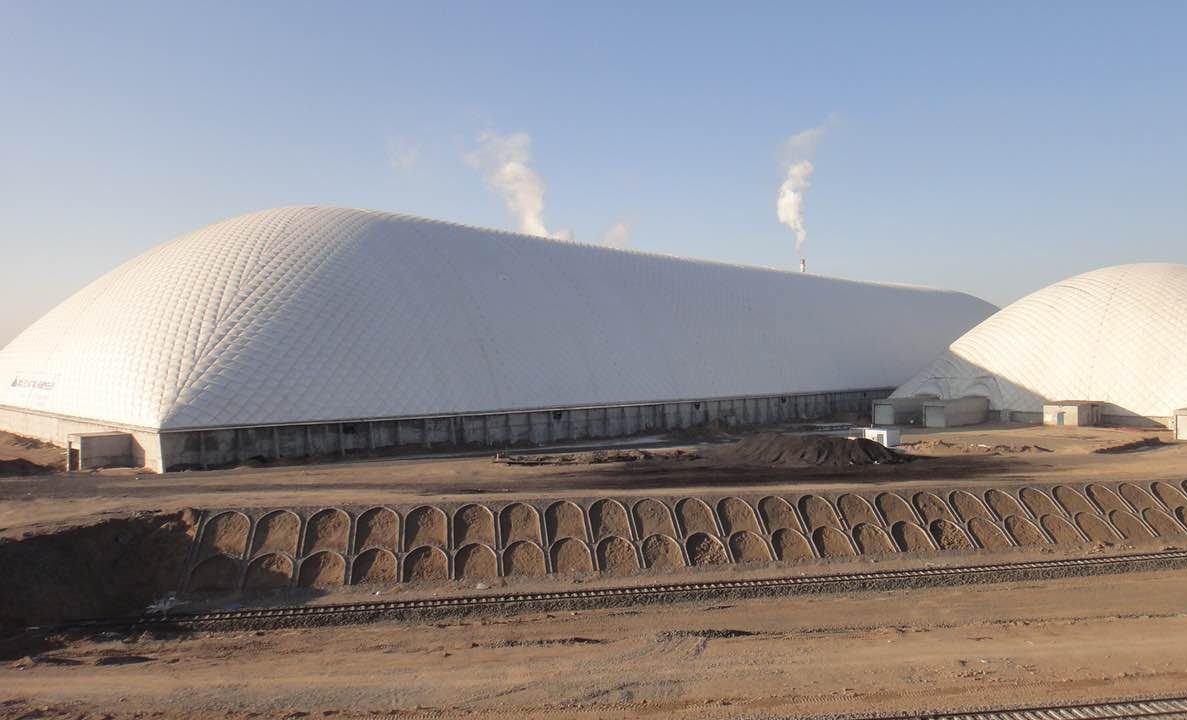
Our domes are comprised of various mechanical elements. Click on the following links to learn more about what pieces make up our domes:
- Air Dome Fabric
- Broadwell's Patented Cable Harness System
- Anchoring Systems
- Inflation and HVAC
- Lights
- Doors




